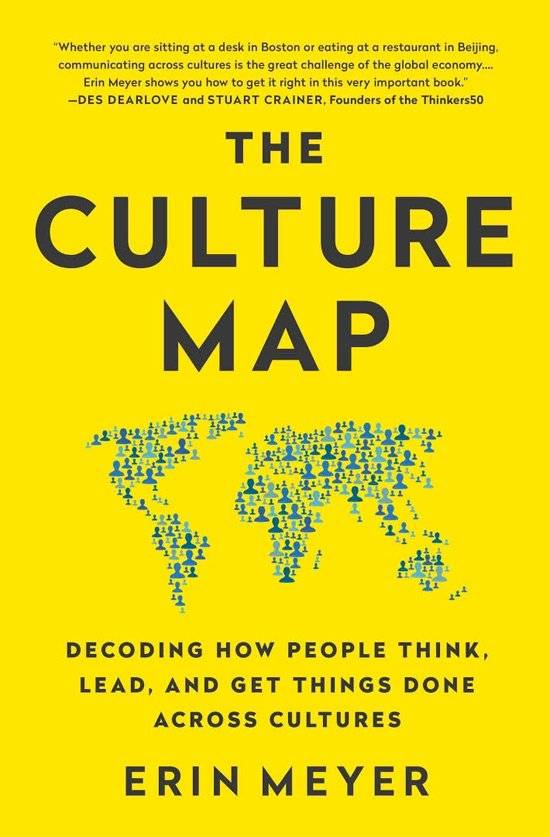Confrontational vs avoids confrontation
Confrontational vs avoids confrontation
How people in France and the United States look at disagreements
 Erin Meyer, an American professor in cross-cultural management and author of a popular book called 'The Culture Map' tells a story from her own experience in her book.
Erin Meyer, an American professor in cross-cultural management and author of a popular book called 'The Culture Map' tells a story from her own experience in her book.
She is American herself but she is married to a Frenchman and lives and works near Paris. She tells how she was at a dinner party with her (French) husband and two other French couples. During the dinner conversation, two of the ladies start discussing something and to Erin Meyer it looks like something goes terribly wrong. But, in the end, she finds out that for French it is perfectly OK to disagree and to debate vigorously. That is not harmful for the relationship (friendship, in this case). On the contrary, French people like to have discussions and to debate.
Americans feel very different about this. In the United States people would not openly disagree and argue in this way.
China and other Confucian societies
 In Confucian societies like China, Korea and Japan it is important to preserve harmony between people and in groups. We will explain a bit more about the concept of 'losing face' in these countries in a later lesson of this course. But for now it is good to know that Chinese and French are kind of opposites in how much they like to disagree and show it.
In Confucian societies like China, Korea and Japan it is important to preserve harmony between people and in groups. We will explain a bit more about the concept of 'losing face' in these countries in a later lesson of this course. But for now it is good to know that Chinese and French are kind of opposites in how much they like to disagree and show it.
Erin explains that a Chinese lady working for the French company L'Oreal was very unpleasantly surprised when her French colleagues criticized her openly during her presentation in Paris. But later on, during the same meeting, French colleagues complimented her and gave positive feedback about her presentation. Again, this is perfectly normal for French people. You can criticize someone harshly but still respect that person and even agree with her in many ways.
Picture left: Confucius teaching, by Wu Daozi, 685-758, Tang Dynasty. [Public domain], via Wikimedia Commons
In China, it would be very unusual to openly disagree. This has everything to do with the role Confucius played in the history of China and other Asian countries like Japan and Korea. In such cultures people learn that harmony is very important. Everyone has a role in several groups (families, clans, organizations) and in society as a whole. People in cultures influenced by Confucius strive to create harmony with others, disagreement is a path to breaking harmony, so it should be avoided, at least to show it openly.
The USA is somewhere in between France (disagreements are fine) and China (disagreements should be avoided).
Disagreements in different countries around the world
Other countries where people can openly disagree:
- Germany
- Russia
- the Netherlands
- Denmark
In the middle near the USA:
- the United Kingdom
- Brazil
- Singapore
- Sweden
Countries where disagreements and confrontations are avoided:
- the Philippines (not as much as in China but still)
- Saudi Arabia
- Ghana
- Japan
- Thailand
- Korea
- Indonesia
Now think again about the situation on board the M.V. Moon Bay
Captain Kor is from the Netherlands, Alexander is from Russia, so they feel different about disagreements and showing them openly than the crew members from the Philippines.
For people from the Netherlands and Russia it is quite normal to disagree and openly show it.
People from the Philippines prefer NOT to openly disagree. They want to preserve harmony. They would not choose to openly criticize someone in a group themselves. They do not like to be criticized by someone, especially, not in a group. That will make them 'lose face'.
Need support?
- Mail us at support@spotonlearning.nl
- Use chat/mail to contact us
- Check the FAQ's
About us
Spot On Learning helps international organisations with international crews and teams learn faster.
